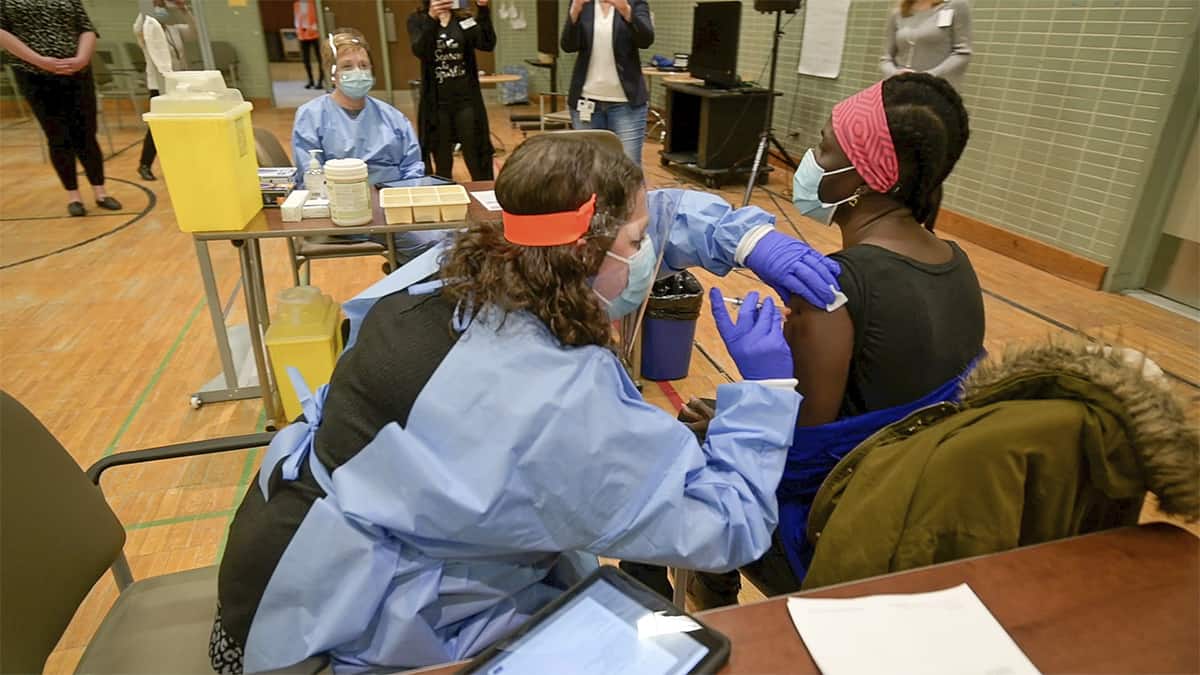A $7.8-million infusion from the province will see the Community Paramedicine Program expand in Waterloo Region.
Since 2018, the paramedicine program has helped people within the community who need some extra assistance at home by giving paramedics the ability to go in and help with medical needs. That will grow with the extra funds announced last week.
Focusing specifically on those who are on a long-term care (LTC) waitlist, or who are eligible for long-term care, the program allows the most vulnerable residents to stay safe and healthy while continuing to live in the comfort of their own homes.
Kitchener-Conestoga MPP Mike Harris said $7,783,900 will come to the Region of Waterloo Paramedic Services over the next three years to help grow and expand the service.
“This program saw some really great results but it was a bit limited in its capacity because it was only running five days a week, and it obviously wouldn’t be able to serve as many people in the community. And then of course with COVID, you had a lot more people wanting to obviously stay at home and not be in long-term care or just that long-term care beds just plainly weren’t available, and that’s been more of the bigger problem,” said Harris.
“The waitlist in Waterloo Region is thousands of people – we have one of the longest waitlists in all of the province for long-term care, so I think as we look towards the future obviously trying to keep people out of the hospital in ALC beds or the alternative level of care beds, and also people just wanting to stay home and not be in long term care,” he added, noting the program expands to a “24/7 care model.”
The LTC version of the program will kick off April 1, with paramedic services chief Stephen Van Valkenburg welcoming the news.
“It’s actually going to hit the ground running on April 1, and we’ll start to expand, because we already have some of these folks within our community paramedic program. So, we’ll just ship them over to this side of the program and then we’ll expand that to get everybody else that’s on the waitlist – or as many as we can,” said Van Valkenburg.
“Everybody that was long-term care waitlisted in the older program will be shifted over to the long-term care, new program, and they’ll get the same exact services. They’ll still get home visits, they’ll still have remote patient monitoring, we’ll do education with them and their families and try to provide some connections to other community agencies that can help them. So, the treatment and the program is virtually the same, except this is specific just to long term care.”
He says those who are still able to be independent and do not need care are not eligible for this program.
People are referred to the program by local organizations, health and community care, or primary care around the region.
Harris said the program will eventually expand to the point where anyone – even if they are not on an LTC waitlist – will be able to age in place and stay in their homes.
“This is to help people with the waitlist but as we move forward, we want to be able to help people age in place, and I think that’s one of the goals that this will help do over the next few years. With three years of funding obviously this will expand the program considerably. We’ll be able to get some more really good data on how the program’s working, and then we’ll be able to see what we need to do in the future to be able to expand it even further.”









